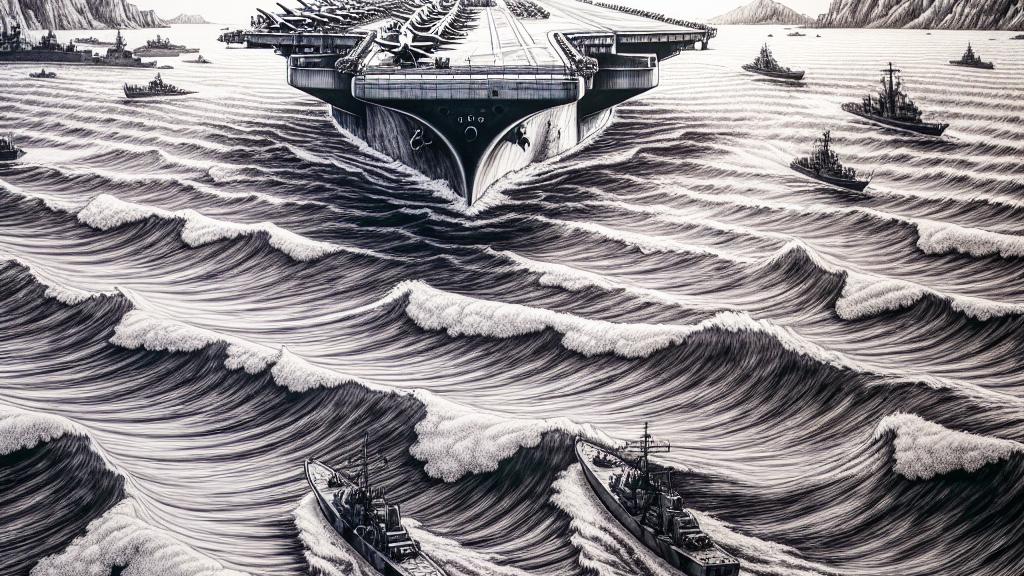Taiwan's Alert as Chinese Carrier Group Moves Near Coast
Overview
- Taiwan's defense ministry detects a formidable Chinese carrier group operating dangerously close to its eastern coast.
- The carrier group, led by the Liaoning, is making its way toward Japan's Yonaguni Island, raising urgent security concerns.
- This military maneuver highlights China's persistent strategy of intimidation, intensifying pressures on Taiwan's sovereignty.

Tensions Rise with Chinese Naval Movements
On the morning of September 18, 2024, Taiwan's defense ministry reported a significant development: a Chinese aircraft carrier group, prominently led by the Liaoning, was observed sailing through the strategic waters off Taiwan’s eastern coastline. This vessel is not just a ship; she represents China's growing naval capabilities and ambitions. As if this weren't alarming enough, the carrier group's course leads directly toward Japan's Yonaguni Island, which is a mere 100 kilometers away—close enough that its silhouettes can be seen from the island under clear skies. To counter such bold actions, Taiwan promptly dispatched its naval forces to monitor the situation closely, aware that these maritime tensions demand immediate attention and careful management.
A Tactical Game of Gray Zone Warfare
The maneuvers of the Chinese carrier group are part of what military strategists refer to as 'gray zone tactics.' This strategy allows China to exert pressure on Taiwan consistently, all while stopping short of outright military confrontation. For instance, in a striking display of aerial strength, Taiwan's defense ministry recorded an unprecedented incursion of 103 Chinese warplanes into its air identification zone within just one day last month. Such brazen acts serve multiple purposes: they are designed to rattle Taiwanese confidence, demonstrate China's military prowess, and challenge the Taiwanese government’s capacity to respond effectively. Ultimately, this ongoing campaign of intimidation seeks to weaken Taiwan's resolve without a single shot being fired, blurring the lines between peace and war.
Regional Reactions and Future Implications
The repercussions of these aggressive military actions extend well beyond Taiwan's immediate shores, impacting the entire East Asian geopolitical landscape. Japan, situated in close proximity to the unfolding situation, views the movements with palpable concern. The visibility of Yonaguni Island from Japan only amplifies the urgency for strategic reassessments. As both Taiwan and Japan grapple with this increasing military assertiveness from China, we may see a fortification of alliances in the region, as countries recognize the need for collective security measures. Analysts warn that these naval displays might be precursors to more substantial actions by China, compelling regional players to enhance their defenses and prepare for any eventualities. Therefore, the current landscape is not just about military posturing; it represents a critical juncture in the balance of power in the Asia-Pacific, where vigilance and strategy will play pivotal roles.

Loading...